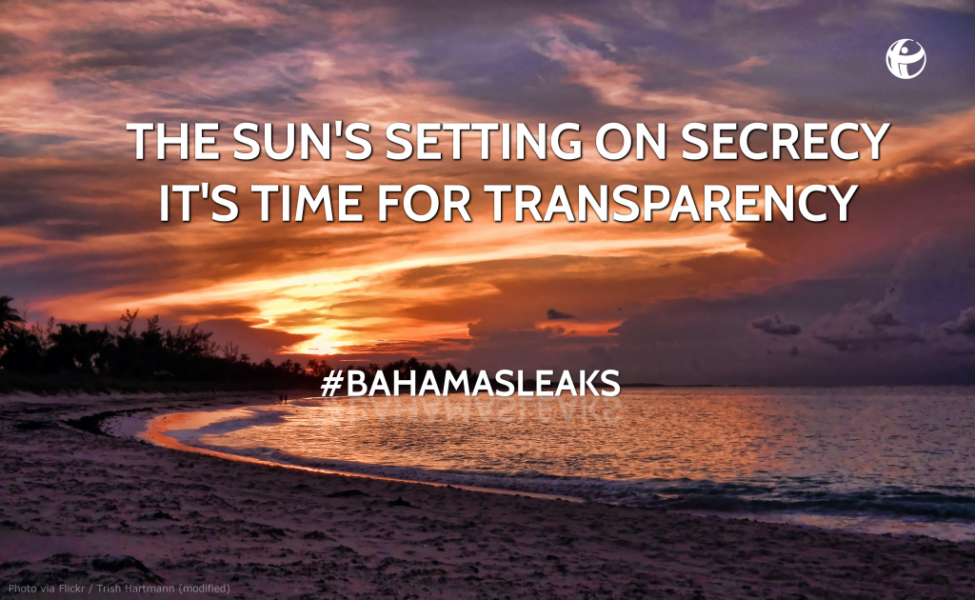Another day, another leak. Another kick to the rotting, crumbling edifice of the offshore world.
BahamaLeaks, the latest scoop from the ICIJ, may not have the global repercussions of its big brother, the Panama Papers, but it does herald some good and bad news for the increasingly beleaguered European Commission.
First the bad news. The last thing the Commission needed after Barroso’s grubby move to Goldman Sachs was yet another ex-Commissioner in the spotlight for links to a pariah multinational corporation. This time it is Neelie Kroes’ links to Enron, a company that has become a byword for corporate fraud on a spectacular scale. Kroes is adamant that she never received payment or any other benefit for her directorship of a Bahamas company that was set up to acquire Enron’s overseas assets, as the deal never went through and the company was largely dormant until 2004. Kroes relinquished her directorship of the company in 2009. It is plausible, therefore, that this slipped her mind as she filled out her register of interests on becoming the Competition Commissioner in 2004. It is also plausible that being linked to the biggest corporate fraud in history via a company registered in a tax haven was sufficiently embarrassing and obscure that it was convenient to leave it to one side, especially in view of her scrupulousness in listing sixty-three other outside interests.
How should the Commission respond? Unlike the Barroso case, there is no need for the Ethics Committee, since Kroes’ breaches of the rules are clear cut and she has admitted responsibility. The truth is there are few options open to the Commission. Going to the ECJ to demand that pension rights be withdrawn seems disproportionate for a relatively minor offense. Withdrawal of the transitional allowance would be possible as Kroes has another year or so of this public subsidy. As these are progressively reduced depending on what other jobs a former Commissioner takes up – and Kroes has racked up an impressive portfolio with Merrill Lynch, Salesforce and Uber – this would be more symbolic than anything else.
The best response would surely be a clear statement from the Commission that Kroes was in the wrong, decisive steps to ensure this does not happen in future and announce a review of sanctions that can be brought to bear when ex-Commissioners are found to have broken the rules.
How can we be sure that other Commissioners do not have similar skeletons in the closet? The simple answer is that we can’t be. The Commission’s register of interests relies entirely on the honesty of would-be Commissioners to list their previous professional activities, on the assumption that civil society watchdogs and journalists will do the rest. Our 2014 report into the Commission’s ethics regime found “no evidence [of] comprehensive verification of declarations, particularly the financial interests of Commissioners…. The EC appears to rely on public scrutiny to ensure veracity, emphasising that the content of declarations is the responsibility of each Commissioner”.
Relying on harried hacks and underfunded NGOs to investigate is an abdication of the EU’s responsibility to defend its integrity. A body such as OLAF or the European Court of Auditors or, even better, a new independent ethics body, should be given the authority and resources to verify the Commissioner’s declarations, ideally in advance of Parliamentary hearings, and to investigate whether there are holdings or positions which have not been declared (as in the Kroes case). Interestingly, the Commission’s own Anti-Corruption Report from 2014 is highly critical of Member States for failing to carry out precisely this kind of verification of politicians’ asset declarations. The report famously did not asses the EU’s own anti-corruption capacities.
Of course, even official authorities will struggle with these kinds of checks if basic information on company ownership and control is hidden from view or difficult to access. OLAF investigators wishing to check on the Bahamas corporate registry would need to turn up in person with the name of the company to hand. Nice work if you can get it, but not really sustainable. What is needed is for the Bahamas (and other jurisdictions) to make public all the relevant corporate data on a publicly accessible website, as the UK currently does.
This is the good news for the Commission. It has in recent years become something of a champion of corporate transparency, culminating in the proposal, published this July, that, if enacted, would oblige all EU Member States to establish public registers of those who ultimately control companies (their “beneficial owners”). This would not apply to the Bahamas and other secrecy jurisdictions of course, but it sets a clear global standard that would be increasingly difficult to resist, especially as political and public opinion turns against them.
Not for the first time the Commission finds itself on the right side of history, only to be let down by the behaviour of its erstwhile political masters.




